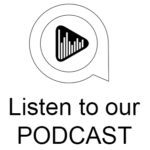I want to sincerely ask you this week; How are you doing? I hope things are going in a positive direction for you and everyone you hold dear. My heart goes out to all the people negatively impacted as we continue to move through COVID-19.
Unlike the financial crisis of 2008, no one caused this. There are no greedy or misguided individuals that we can be angry with or blame. All evidence so far points to the fact that the COVID-19 virus is naturally derived and not man-made. This is nature and humans.
As I’ve pursued my career, I’ve always put people first. People before profits. People before systems. People. People. People. Separation from people has been the hardest part for me during the COVID-19 shut down. That said, focusing on people is not always easy. I remember telling my son once when he was of college age, that I understand why people like to work with and care about nature and animals…it’s easier. Nature and animals don’t have the human characteristics that can make them much more challenging to work with and even love. Us “humans” are challenging and sometimes just pains in the you know what, but we also offer so much more. I love learning about people and their behavior. That curiosity has served me well as I built our company teams, served on boards and volunteered with non-profits and worked with clients. And you know what I know for sure? I know that while people tend to follow patterns of behavior, they can often be full of surprises. And certainly, full of potential.
Adaptability is important. People adapt and then they tend to conform. Adaptability is about making something suitable, getting something to fit. Conformance generally follows, as one begins to act in accordance with expectations. And in today’s connected world, conforming – to behave like others, is really strong, given that social pressure is everywhere. Generally speaking, this pattern is a good thing. As you adapt to a new situation, you bring harmony with some standard patterns. Those who study human behavior know that everyone can be located on a cognitive style continuum ranging from a preference for doing things better (adaptive style) to a preference for doing things differently (innovative style). The more adaptive individual prefers more structure than one who is more innovative and both styles work and produce very successful people. You only have to look at two famously successful people – Bill Gates compared to Richard Branson. Bill tends to be objective and direct, favoring straightforward facts over ambiguous emotions. Richard is likely to thrive in chaos, with a preference for shaping new ideas and taking calculated risks. Together they make one heck of team in times of turmoil!
Clearly, a big disruptor has been that office workers have been forced to not just work remotely, but work remotely in their homes on what will most likely be a temporary situation. And though the academic research on remote productivity is mixed – some say it declines and others say it increases, a common thread is that a person’s success will depend on how they do it. People and teams can rise above the rest in times of turmoil, regardless of the challenges. They can win market share. They can keep their productivity high, or higher. All they need to do is adapt, conform a little and invent. It seems that if you study people, you’ll find that the most adaptive and inventive aren’t that way because they experienced fewer stressful experiences, had better leadership, happier homelives, more education, fancier titles or easier jobs. They didn’t have privileged childhoods, and they weren’t born with special genetic gifts. The most adaptive and inventive exhibited “experiential courage”.
It’s human nature to look to the past to find answers to make sense of whatever traumatic change we are experiencing, but it’s not the best thing to do. The best thing is only look forward. Look to the future and don’t always yearn for things the way they were. Experiment with how the future might look. It’s good to go a little slower as you enter the “curve” heading towards a clear track, but like a first-class race driver, be prepared to hit the gas and come out of the chute at full speed.
So, I urge you to explore your style and the styles of those you interact with. If you feel it, lead and set good examples. Ask people how they’re feeling, where they may be struggling with motivation and ask them to share out loud where they’ve thrived during the last few months. My guess is that with some conscious effort and introspection, we can all raise our adaptive score a couple of points. Are you in?


